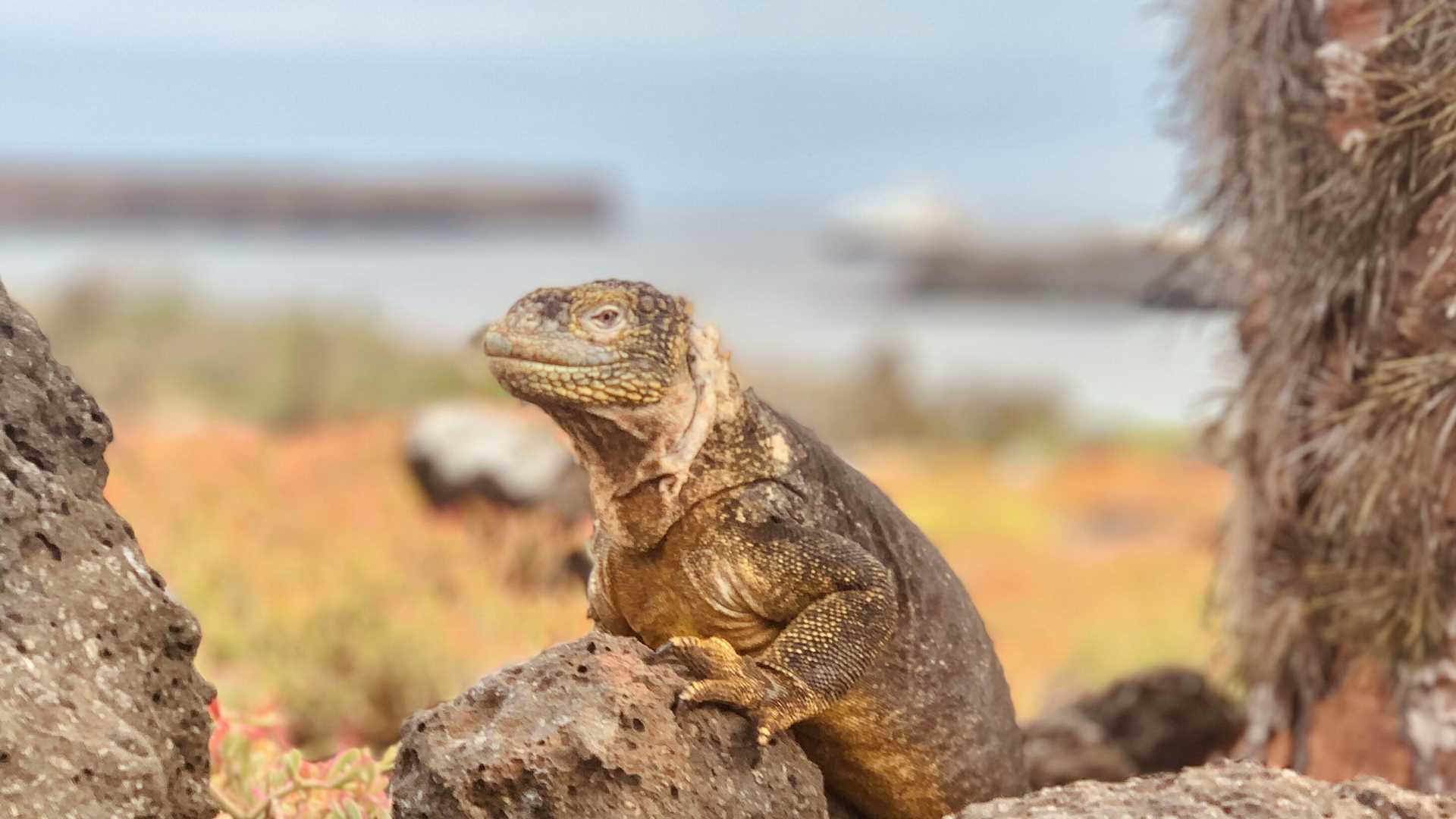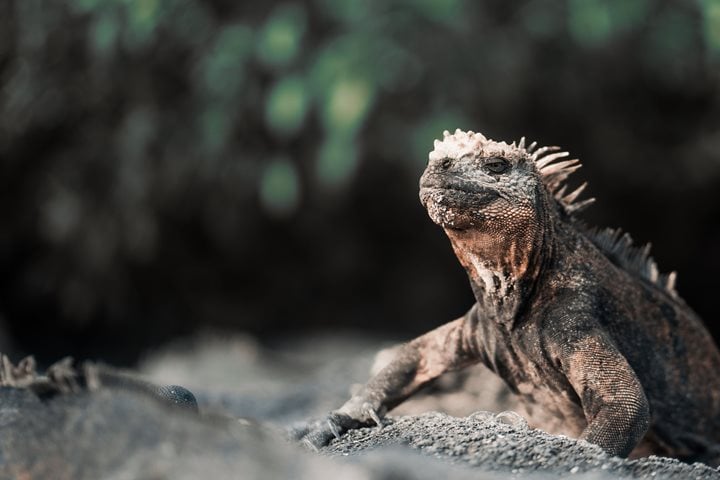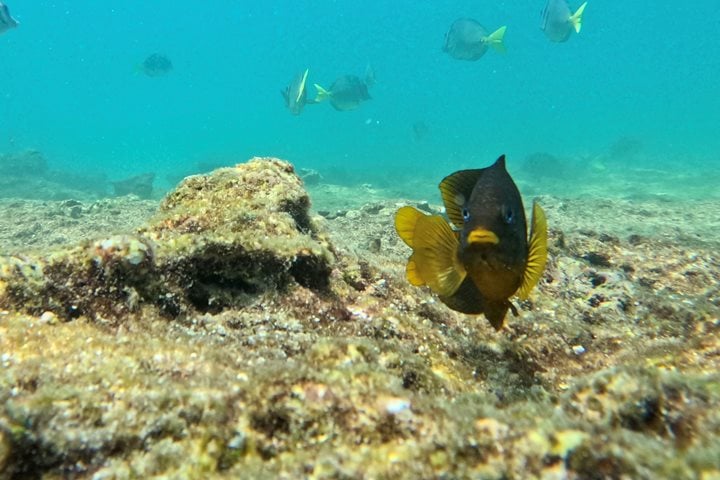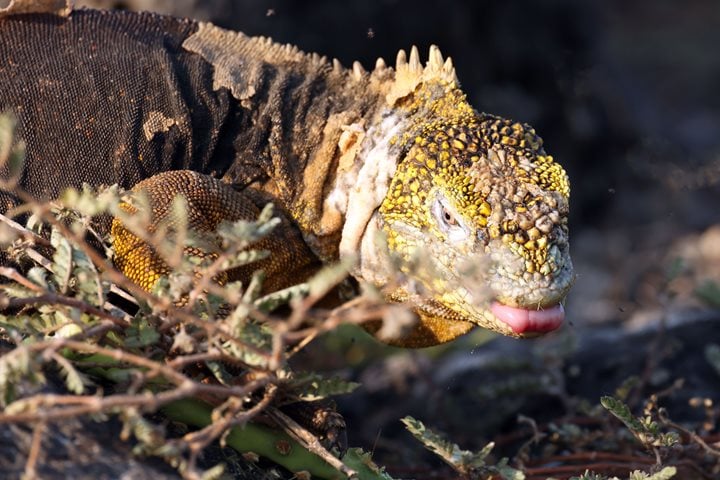Today, during our first full day of the expedition, the guests of National Geographic Islander II explored South Plaza and Santa Fe Islands. During the morning we hiked on South Plaza, and for the afternoon we snorkeled and hiked at Santa Fe.
South Plaza Island is home to several iconic species of Galápagos fauna, including Galápagos land iguanas, swallow-tailed gulls, and Galápagos sea lions. One of the most prominent species we encountered on the island was the Galápagos land iguana. These reptiles are endemic to the Galápagos Islands and during the dry season primarily feed on cactus pads and prickly pears. At this time of the year the island is green, and the iguanas were feeding on yellow flowers. We also observed them basking in the sun to regulate their body temperature, a common behavior among reptiles.
Another species we encountered on the island was the swallow-tailed gull. These birds are easily recognizable by their long, forked tail, red eye ring, and striking black and white plumage. They are seabirds that breed on the rocky cliffs of South Plaza Island; we saw them in large numbers perched on the cliffs and soaring overhead.
Santa Fe is a small island, but it is home to a wealth of unique and fascinating wildlife, including the Santa Fe land iguana, the Galápagos hawk, and the Galápagos sea lion.
After landing on the island we had the pleasure of encountering Galápagos sea lions on the sandy beach. These charismatic mammals are endemic to the Galápagos Islands and are known for their friendly and curious behavior. We saw them lounging on the beach and rocks, vocalizing with each other, and occasionally approaching us to investigate. We also observed a group of sea lion pups playing and frolicking in the water, displaying their agility and acrobatic skills.
Overall, our expedition to South Plaza and Santa Fe Islands was an unforgettable experience. The opportunity to see these rare and beautiful creatures in their natural habitat was truly a privilege. It also highlighted the importance of conservation efforts to protect the unique and fragile ecosystems of the Galápagos Islands.







